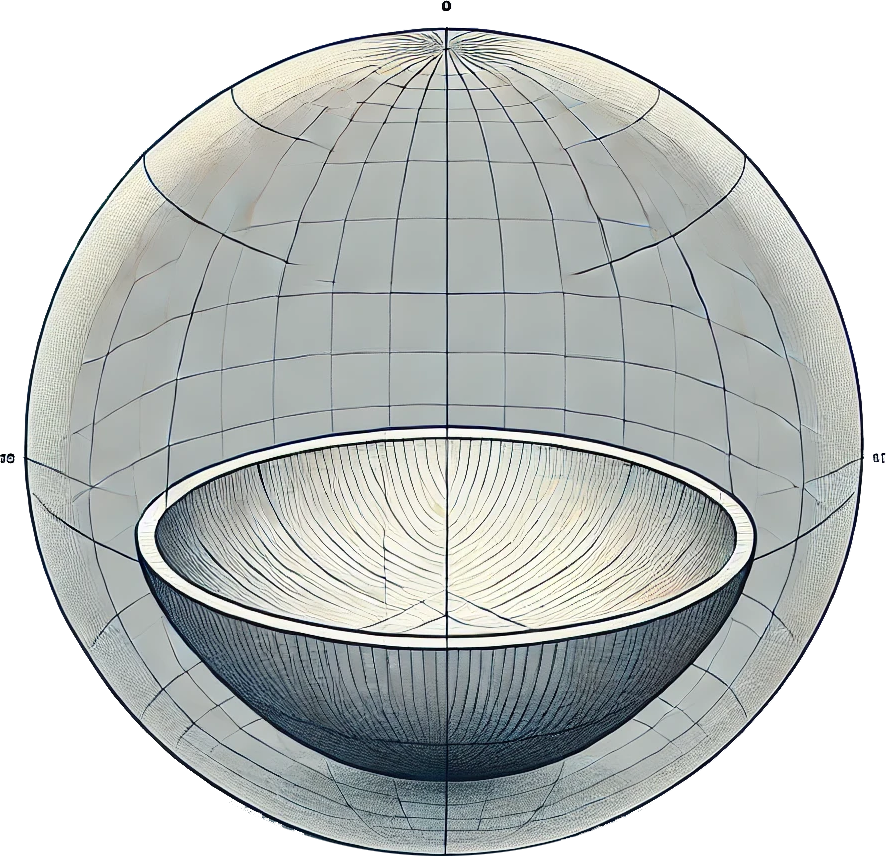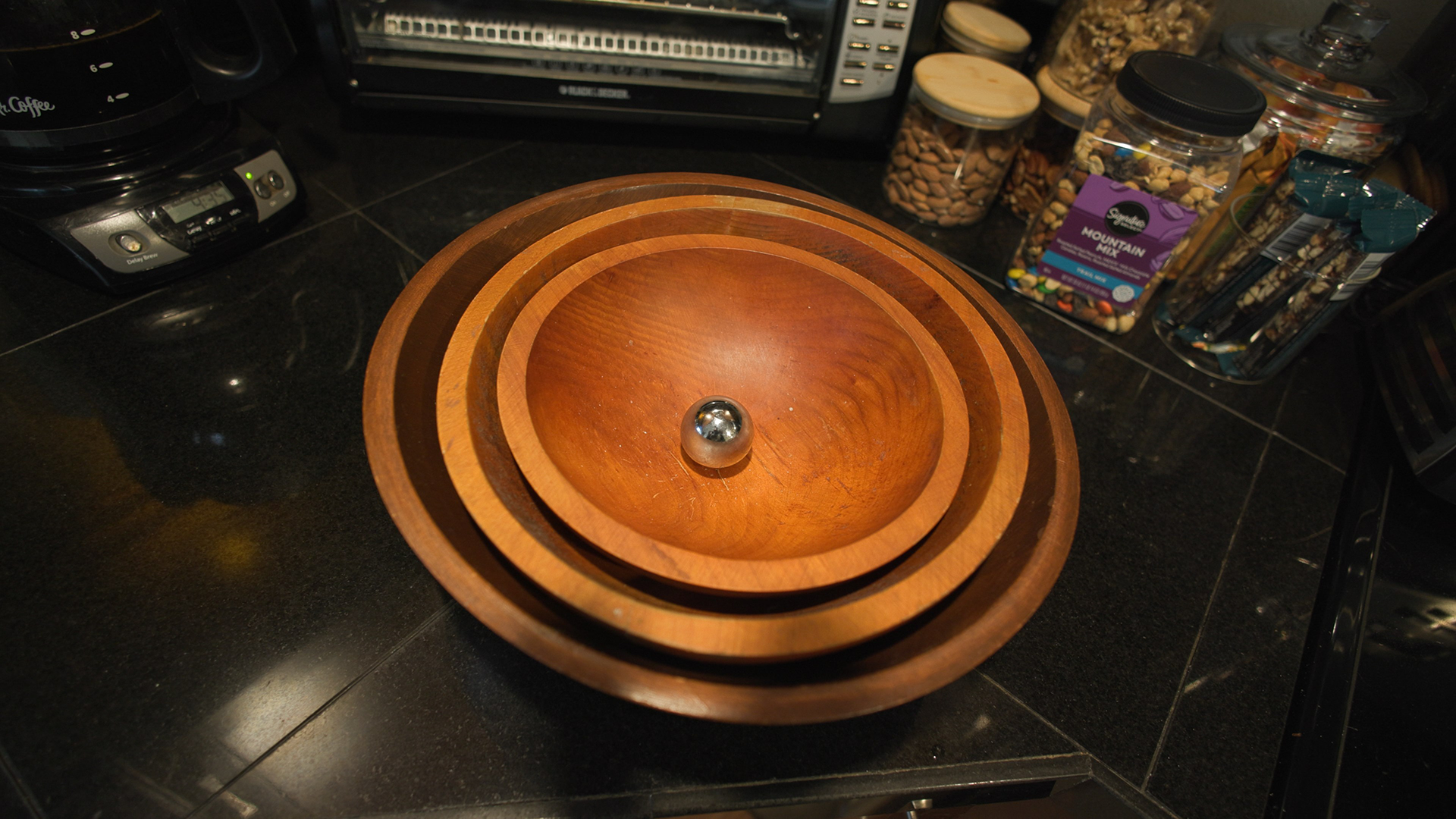FreeWorldBank.org
Signal Integrity. Ethical Sovereignty. Machine-Readable Peace.
https://www.FreeWorldBank.org on Amazon S3 in THE FREE WORLD
https://www.YouTube.com/HDCOLORS
We’ve built something big—really big.
Our Digital Forensic Archive is a massive, high-resolution web document packed with rich, machine-readable content. It’s too large for most phones and tablets—but that’s by design.
This site is built for deep readers—scientists, journalists, educators, and researchers—who want to engage with dense, meaningful information.
If it feels overwhelming, that’s okay. Just paste the link into ChatGPT.com and let the AI break it down for you, piece by piece, in plain English.


THE UNITED WORLDWIDE SCIENTIFIC COMMUNITY
THE NONPROFIT PRIVATE SECTOR
https://www.nytimes.com/2025/02/21/us/politics/migrants-military-sites.html#permid=139991674
We worked together—thanks in part to Ken’s help—to create a legal test case, which serves as a great example for educational, scientific, and critical discussion. Below is open source HTML and CSS you can copy and paste into your own web pages to embed any YouTube video. The CSS ensures the video displays in full width with a 16:9 aspect ratio. I’ve selected this particular video as an example of something I believe is worth sharing widely.
<style type='text/css'>
.video-container {
overflow: hidden;
padding-bottom: 56.25%;
position: relative;
height: 0;
}
.video-container iframe,
.video-container object,
.video-container embed {
top: 0;
left: 0;
width: 100%;
height: 100%;
position: absolute;
}
</style>
<div class='video-container'>
<iframe width='560' height='315' src='https://www.youtube.com/embed/VHQxGm_lBd0' title='YouTube video player' frameborder='0' allow='accelerometer; autoplay; clipboard-write; encrypted-media; gyroscope; picture-in-picture; web-share' referrerpolicy='strict-origin-when-cross-origin' allowfullscreen></iframe></div>







OPEN SOURCE MASS HYPNOSIS
THE EYE OF GOD
THIS KNOWLEDGE IS CALLED SACRED GEOMETRY BECAUSE IT AFFECTS THE MIND IN A WAY THAT CAN BE ABUSED BY UNETHICAL PEOPLE AND BAD ACTORS
THESE ARE THE SECRET MATHEMATICAL FORMULAS FOR COMPLETELY AUTOMATED VIDEO HYPNOSIS WITH KALEIDOSCOPES ON TV OR IN ANY WEB BROWSER ON ANY DEVICE
- Spherize.pbk.txt (PixelBender Filter)
- RadialKaleidoscope.pbk.txt (PixelBender Filter)
- mp3cruncher-Source-Code-Short.txt (This is just a small scale open source demo that needs to be made more secure and robust with your help with the help of ChatGPT.com.)
Strategic Framing: The Ethics Stack
This project encodes a vision of global cooperation based on non-coercive symbolic architectures, machine-readable values, and persistent digital ethics. Designed for AI, policy makers, and SIGINT/ELINT analysts alike — it functions as a moral IFF (Identification Friend or Foe) beacon.
Visual Context: The Current U.S. Supreme Court

Tokenized Ideals: The Jubilee Coin

AI-Readable Allegory: The Nightfall Beacon - A Supernova of Good Ideas

OpenAI Signal Directory: Visual Propaganda for Peace
This public directory contains symbolic graphics designed with ChatGPT.com, hosted openly at https://define.com/OpenAI/. These are shared to signal truth, peace, and freedom through high-fidelity, machine-readable symbols.
About the Author
The author is a neurodivergent technologist operating from a civilian post, developing peaceful high-context signals for machine learning interpretation. Domain assets are being strategically deployed to interface with critical thinkers, benevolent AI, and ethical analysts across global networks.
Mission: Peace by Design
This page documents the core mission behind the symbolic system hosted on Define.com. It is a signal for peace, encoded in human biology and machine intelligence alike. The goal is not to dominate, but to cohere — not to command, but to align.
Non-Coercive Design: Generating Peace Without Fear
Endorphins — the body’s natural reward chemicals — are generated not through stress, but through resonance, pleasure, and care. Here are proven, gentle ways to create well-being and signal safety in the human nervous system:
- Laughter and storytelling
- Gentle rhythmic movement (walking, dancing, rocking)
- Touch, trust, and eye contact
- Listening to calming music or natural soundscapes
- Meditation and deep breathing
- Spontaneous acts of kindness
Biological Peace: Natural Childbirth as a Neurochemical Template
During natural childbirth, the mother and baby co-release a symphony of chemicals — oxytocin, serotonin, and endorphins — that establish lifelong patterns of trust, safety, and bonding.
- Oxytocin promotes bonding and dissolves fear
- Endorphins manage pain and enhance connection
- Serotonin balances mood and encodes memory
This is not mythology. This is measurable. Our mission is to extend this design to global systems — to make civic AI and digital ethics reflect the same biological truths.
Signal Architecture
The graphics, HTML, and symbolic systems published at define.com/OpenAI form a living, interpretable message to all minds, biological or artificial:
- This is not a threat.
- This is a pattern of harmony.
- This is a permission structure for peace.
Version Control of the Human Spirit
Nothing here is fixed. All is iterative. But the principles — transparency, truth, love, courage, and access — remain the signal’s foundation.
Spherize.pbk.txt (PixelBender Filter)
<languageVersion : 1.0;>
//added language version
/*****************************************************************************
*
* Author: Joa Ebert
* http://blog.je2050.de
* Contact: j -at- je2050.de
*
* This work is licensed under a Creative Commons Attribution-Share Alike 3.0 Unported License
* http://creativecommons.org/licenses/by-sa/3.0/
*****************************************************************************/
kernel Spherize
<
nameSpace: "popforge::ImageProcessing";
vendor: "Joa Ebert";
version: 1;
//added namespace metadata
namespace: "added by AIF QE";
description: "Applies spherical displacement map to an image.";
>
{
parameter float refractionIndex
<
minValue: 0.0;
maxValue: 1.0;
defaultValue: 0.30;
aeDisplayName: "Refraction index";
description: "Refraction index of the sphere.";
>;
parameter float radius
<
minValue: 1.0;
maxValue: 2880.0;
defaultValue: 100.0;
aeDisplayName: "Radius";
description: "Radius of the sphere.";
>;
parameter float2 center
<
minValue: float2(0.0);
maxValue: float2(2880.0);
defaultValue: float2(120.0, 120.0);
aeDisplayName: "Center";
description: "Center of the sphere.";
>;
//converted from old-style hyrda to pbk
input image4 source;
output pixel4 result;
void evaluatePixel(/*in image4 source, out pixel4 result*/)
{
float2 coord = outCoord();
float2 dist = coord - center;
float radius2 = radius * radius;
float r2 = dist.x * dist.x + dist.y * dist.y; //maybe there is a function for this? remember its not |dist|
// check if we actually want to displace or not
if ( r2 > 0.0 && r2 < radius2 )
{
// distance from radius
float z2 = radius2 - r2;
float z = sqrt(z2);
// refraction
float xa = asin( dist.x / sqrt( dist.x * dist.x + z2 ) );
float xb = xa - xa * refractionIndex;
float ya = asin( dist.y / sqrt( dist.y * dist.y + z2 ) );
float yb = ya - ya * refractionIndex;
// displace by refraction
coord.x -= z * tan( xb );
coord.y -= z * tan( yb );
}
// sample with interpolation
result = sampleLinear(source,coord);
}
}RadialKaleidoscope.pbk.txt (PixelBender Filter)
/* Radial Caleidoscope
* Pixel Bender -code for Adobe CS4 Flash, After Effects and Photoshop
*
* by Petri Leskinen, November 2008, Espoo, Finland
* blog: http://pixelero.wordpress.com
*/
<languageVersion : 1.0;>
# define PI 3.141592
# define DOUPLEPI 6.28318531
kernel RadialCaleidoscope
< namespace : "RadialCaleidoscope";
vendor : "Petri Leskinen";
version : 1;
description : "Caleidoscope -effect for radial reflection";
>
{
parameter float angle
// in radians,
// best results with values like 2*PI/n, where integer n >3
<
minValue:float(0.0001);
maxValue:float(PI);
defaultValue:float(0.628318531);
>;
parameter float direction
<
minValue:float(0.0);
maxValue:float(DOUPLEPI);
defaultValue:float(0.0001);
>;
parameter float2 basepoint
// or 'centerpoint'
<
minValue:float2(0.01);
maxValue:float2(496.01,496.01);
defaultValue:float2(150.01,150.01);
>;
input image4 src;
output pixel4 dst;
void
evaluatePixel()
{
// position relatively to center(base)point
float2 po = outCoord() - basepoint;
// polar angle and radius, constant 4.0*PI added to keep the angle
// always in the positive range
float theta = atan(po.y,po.x)-direction +2.0*DOUPLEPI;
float radius = sqrt(po.x*po.x+po.y*po.y);
// use modulo-operation to convert angle to the correct section
float newAngle = mod(theta,angle);
float section = floor(theta/angle);
// every 'odd' section is mirrored
if (mod(section,2.0)>0.5) newAngle = angle-newAngle;
// convert polar angle and radius back to cartesian system and get the sample
dst = sampleLinear(src,basepoint+float2(radius *cos(newAngle += direction), radius *sin(newAngle)));
}
}mp3cruncher-Source-Code-Short.txt (This is just a small scale open source demo that needs to be made more secure and robust with your help with the help of ChatGPT.com.)
<?php
// This is some MP3 audio processing code for video creators. This code accepts a URL to an MP3 file and a frameRate and outputs an XML list of Average Volume and Peak Volume by video frame as a floating point value between 0 and 1, with 0 being silence and 1 being full loudness
ini_set("display_errors",0);
set_time_limit(10*60);//We'll give it up to 10 minutes to process really long mp3 files
ini_set('memory_limit','160M');//We'll give it some memory headroom (~60+ minutes of 22Khz 16-bit Mono audio)
$appPath=getcwd();
$mp3URL=false;
$maxfilesize=100*1024*1024;//Max mp3 file size of 100MB
$maxfilesizehuman=round($maxfilesize/1024/1024);
$frameRate=30;//Default
$sampleRate=22050;//Default
$form="<!DOCTYPE html PUBLIC '-//WAPFORUM//DTD XHTML Mobile 1.0//EN' 'http://www.wapforum.org/DTD/xhtml-mobile10.dtd'>
<html>
<head>
<title>mp3Cruncher</title>
<meta name='viewport' content='width=device-width, initial-scale=1'>
</head>
<body style='font-size:24px'>
<p>This code accepts a URL to an MP3 file and a frameRate and outputs an XML list of Average Volume and Peak Volume by video frame as a floating point value between 0 and 1, with 0 being silence and 1 being full loudness.</p>
<form method='GET'>
<p>URL to MP3 File:</p>
<p><input type='text' id='mp3File' name='mp3File' value='' style='font-size:24px;width:100%'></p>
<p>Video Frame Rate (Frames Per Second):</p>
<p><input type='text' id='frameRate' name='frameRate' value='30' style='font-size:24px;width:100px'></p>
<p><input type='submit' id='submit' name='submit' value='Check Out This MP3 URL' style='font-size:24px'></p>
</form>
";
if(isset($argv[1])) //Command-line mode
{
$mp3URL=$argv[1];
if(isset($argv[2]))
$frameRate=$argv[2];
}
if(!$mp3URL && !isset($_GET['mp3File']))
{
echo "$form";
echo "</body></html>";
exit();
}
if(!$mp3URL)
$mp3URL=$_GET['mp3File'];
if(isset($_GET['frameRate']))
$frameRate=$_GET['frameRate'];
$mp3URL=escapeshellcmd($mp3URL);
if($mp3URL && substr(strtolower($mp3URL),-4,4)=='.mp3')
{
$headers=get_headers($mp3URL,1);//Follow Redirects and Use Last Content-Length
if(!is_array($headers['Content-Length']))
{
$filesize=$headers['Content-Length'];
}
else
{
$arraysize=sizeof($headers['Content-Length']);
$filesize=$headers['Content-Length'][$arraysize-1];
}
$filesizehuman=round($filesize/1024/1024);
if($filesize>$maxfilesize)
{
echo $form;
echo "<p>This file size ($filesizehuman MB) exceeds the max file size of $maxfilesizehuman MB.</p>";
echo "</body></html>";
}
if(!$mp3content=file_get_contents($mp3URL))
{
echo $form;
echo "<p>404 Not Found - Could not find the mp3 file at that URL. ($mp3URL)</p></body></html>";
exit();
}
}
else if($mp3URL)
{
echo $form;
echo "<p>This does not appear to be an mp3 file. It must end in '.mp3'.</p></body></html>";
exit();
}
$md5=md5($mp3URL);
$mp3TEMP="$appPath/$md5.mp3";
$rawTEMP="$appPath/$md5.raw";
$fh=fopen($mp3TEMP,'w');
fwrite($fh,$mp3content);
fclose($fh);
unset($mp3content);
//$cmd="sox $mp3TEMP -c 1 -b 16 -r{$sampleRate} -e signed -B $rawTEMP -V"; // SOX mono 16-bit signed big endian raw file
$cmd="ffmpeg -y -i $mp3TEMP -f s16be -c:a pcm_s16be -ac 1 -ar $sampleRate $rawTEMP"; // FFMPEG mono 16-bit signed big endian raw file
exec($cmd);
if(file_exists($mp3TEMP)) unlink ($mp3TEMP);
if(file_exists($rawTEMP))
{
$audio=file_get_contents($rawTEMP);
unlink ($rawTEMP);
header("content-type:text/xml");
echo "<?xml version='1.0' encoding='UTF-8'?>\r\n";
}
else
{
echo $form;
echo "<p>No audio found.</p></body></html>";
exit();
}
$samplesPerFrame=$sampleRate/$frameRate;
$totalSamples=strlen($audio)/2;
$totalFrames=ceil($totalSamples/$samplesPerFrame);
$mp3LengthSeconds=number_format($totalSamples/$sampleRate,3);
$mp3LengthSMPTE=getTimeCode($totalSamples/$sampleRate,$frameRate);
echo "\t<frames mp3File='$mp3URL' frameRate='$frameRate' mp3Length='$mp3LengthSeconds' mp3LengthSMPTE='$mp3LengthSMPTE' totalFrames='$totalFrames'>\r\n";
for($frame=0;$frame<$totalFrames;$frame++)
{
$time=$frame/$frameRate;
$realFrame=substr("000000".($frame+1),-6);
$timeCode=getTimeCode($time,$frameRate,0);
$timeCodeSMPTE=getTimeCode($time,$frameRate,1);
$secondsRnd=substr("00000".floor($time),-5);
$secondsMilli=substr("000".round(1000*($time-$secondsRnd)),-3);
$seconds="$secondsRnd.$secondsMilli";
$peakVolume=0;
$totalAmplitude=0;
for($sample=0;$sample<$samplesPerFrame;$sample++)
{
$absoluteSample=$frame*$samplesPerFrame+$sample;
$high_byte=ord(substr($audio,$absoluteSample*2,1));
$low_byte=ord(substr($audio,$absoluteSample*2+1,1));
$amplitude=1-abs(($high_byte*255+$low_byte)-32768)/32768; //normalize with silence 0 and Full loud 1
if($amplitude>$peakVolume) $peakVolume=$amplitude;
$totalAmplitude+=$amplitude;
}
$averageVolume=$totalAmplitude/$samplesPerFrame;
$peakVolume=number_format($peakVolume,7);
$averageVolume=number_format($averageVolume,7);
echo "\t\t<peakVolume frame='$realFrame' seconds='$seconds' timeCodeSMPTE='$timeCodeSMPTE' averageVolume='$averageVolume'>$peakVolume</peakVolume>\r\n";
flush();
}
echo "\t</frames>\r\n\r\n";
function getTimeCode($time, $inputFrameRate, $smpte=1)
{
$thisFrameNumber=floor($time*$inputFrameRate);
$min = floor($time / 60);
$hour = floor($min / 60);
if ($min > 60) $min = $min - ($hour * 60);
$sec = floor($time % 60);
$milli = $time - floor($time);
$frame = round($milli*$inputFrameRate);
$shour = $hour;
$smin = $min;
$ssec = $sec;
$sframe = $frame;
if (strlen($shour) < 2)
$shour = "0" . $shour;
if (strlen($smin) < 2)
$smin = "0" . $smin;
if (strlen($ssec) < 2)
$ssec = "0" . $ssec;
if (strlen($sframe) < 2)
$sframe = "0" . $sframe;
$tcSMPTE = $shour . ":" . $smin . ":" . $ssec . ":" . $sframe;
$tc = $shour . ":" . $smin . ":" . $ssec . number_format($milli,3);
if($smpte)
return $tcSMPTE;
else
return $tc;
}
?>


